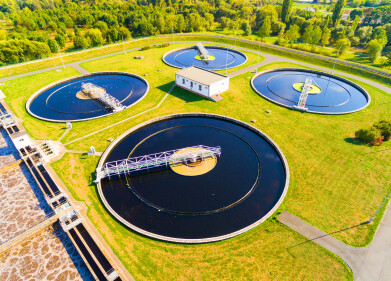Water/Wastewater
Don’t Ignore Water Experts Warn Copenhagen
Mar 10 2010
Professor Patricia Wouters, Director of the UNESCO Centre for Water Law, Policy and Science, University of Dundee, today fired a shot across the bows of climate change negotiators in Copenhagen, warning them not to ignore one of the planet’s most vital natural resources of all - water.
“Water must be part of the climate change negotiations, and water law must be part of the water agenda, otherwise any solution could be deeply compromised, at best,” warned Professor Wouters.
900m people suffer globally due to lack of access to clean water; and globally people are as likely to be reliant on water originating outside their own country’s borders as within them - hence the centrality of international water law in a world of rising population and scarce water resources.
“The future economic welfare of nation states will depend upon how they manage their water, especially across national borders - and there will be conflicts-of-use right across the spectrum”, said Wouters.
“If water is left out of the dynamic, we are undermining the very foundation of the climate change initiative,” said Professor Wouters.
“This is a daily issue of survival for poor people across the globe and there are daily reminders of the catastrophic effects to lives, livelihoods and ecosystems as a result of too much or too little water.”
Professor Wouters, who heads up the UK’s only UNESCO Centre, and the world’s only UNESCO Centre combining water law, policy and science, is concerned about the lack of “connecting up the dots” on matters related to regional peace and security, and national economic welfare.
“National governments are responsible for ensuring the economic stability of their populations, and it is clear that water follows money
- there is a clear divide between the haves and have-nots and equitable and sustainable access to water is a critical measure of health, prosperity and security”, said Professor Wouters, whose own research examines the concept of water security within international transboundary watercourses around the world.
“The future is fraught with uncertainty, apart from the certainty of competing uses for diminishing quantities of quality water,” she said.
The recently released Mckinsey Report on water forecasts a future water gap of 40%, with 42% of the global water demand over the next few decades coming from China, India, South Africa and Brazil. “What is missing from most of the discourse is the critical role that water law can play in bringing clarity and transparency to this future filled with the potential for conflict over water at the user, national, regional and international levels,” said Professor Wouters.
“Identifying and agreeing the `rules of the game’ brings certainty to a future filled with confusion and potential chaos. Indeed, the real challenge is to engage a broad range of stakeholders, across a range of sectors and beyond boundaries so that we can together find innovative solutions.”
Professor Wouters endorsed the decision of the Norwegian government to invest in providing scholarships on climate change, instead of giving gifts to the participants -- the 4 million Danish kroner saved , roughly 700,000 dollars, will be spent on climate scholarships allowing 10-12 candidates from all over the world to carry out 2-year climate related master’s programmes at Danish universities.
Digital Edition
IET 34.2 March 2024
April 2024
Gas Detection - Biogas batch fermentation system for laboratory use with automatic gas analysis in real time Water/Wastewater - Upcycling sensors for sustainable nature management - Prist...
View all digital editions
Events
Apr 30 2024 Melbourne, Australia
Apr 30 2024 Birmingham, UK
May 03 2024 Seoul, South Korea
May 05 2024 Seville, Spain
May 06 2024 Minneapolis, MN, USA


















